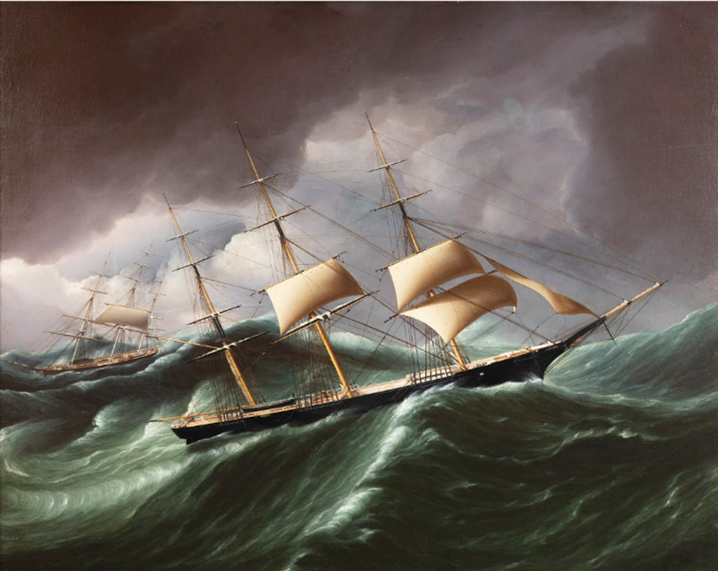Industry News
Vessel Fees, LNG Export Restrictions, and Proposed Tariffs on Chinese Maritime, Logistics, and Shipbuilding Sectors
TweetApr. 18, 2025
By:
Austin J. Eighan
 The Office of the United States Trade Representative (USTR) announced the vessel fees and other measures the Trump Administration deems necessary to counteract China’s dominance in the maritime, logistics, and shipbuilding sectors. The action stems from a comprehensive investigation initiated under Section 301 of the Trade Act of 1974, which found China’s active targeting of these industries unreasonably burdens and restricts U.S. commerce, as discussed in our prior articles here and here.
The Office of the United States Trade Representative (USTR) announced the vessel fees and other measures the Trump Administration deems necessary to counteract China’s dominance in the maritime, logistics, and shipbuilding sectors. The action stems from a comprehensive investigation initiated under Section 301 of the Trade Act of 1974, which found China’s active targeting of these industries unreasonably burdens and restricts U.S. commerce, as discussed in our prior articles here and here.
USTR’s measures include phased fees on Chinese-operated and Chinese-built ships entering U.S. ports, as well as foreign-built vehicle carriers. In its April 17 report, USTR concluded that these actions serve as the appropriate means to address the alleged trade discrepancies: “China’s targeting for dominance [is] unreasonable because it displaces foreign firms, deprives market-oriented businesses and their workers of commercial opportunities, and lessens competition and creates dependencies on China, increasing risk and reducing supply chain resilience.”
As highlighted in the accompanying table, these fees will increase incrementally over the next three years following a 180-day grace period. The fees will vary based on whether the vessel is owned or operated by a Chinese citizen or entity, only Chinese-built, or is a foreign-built vehicle carrier. The fees will be assessed on the first point of entry per rotation/string, and will not be issued more than five times per year, per vessel.

USTR has carved out key exemptions for U.S.-owned vessels, vessels enrolled in U.S. Maritime Administration programs, smaller vessels, ships arriving empty or in ballast, vessels in short sea shipping trades (i.e., voyages of less than 2,000 nautical miles from certain U.S. ports), and certain specialized export vessels.
Apart from fees on import vessels, USTR will incentivize the use of U.S.-built liquefied natural gas (LNG) vessels by implementing restrictions on exports via foreign-built carriers. Specifically, the agency will introduce export restrictions on the maritime transport of LNG via foreign-built carriers beginning April 17, 2028, which will gradually increase over 22 years.
In addition to the fees and export restrictions, the USTR proposed tariffs on ship-to-shore cranes and other cargo handling equipment, aligning with the President’s Maritime Executive Order issued on April 9. The potential tariffs would impact items imported under certain classifications of the Harmonized Tariff Schedule (HTSUS) at rates ranging from 20% to 100%, as indicated in the accompanying table.

USTR has requested public comment on the proposed tariffs in line with the following deadlines:
· May 8, 2025: Deadline to request an appearance at the public hearing on the proposed tariff action to be filed under Docket ID No. USTR-2025-0009.
· May 19, 2025: Deadline for comments on the proposed tariff action to be filed under Docket ID No. USTR-2025-0008.
If your company would like to assess and discuss strategies to mitigate the impact of the Section 301 fees or the proposed tariffs, please reach out to one of our attorneys at Barnes, Richardson & Colburn.
